Alternative Editorial: This Is Waking Up
Something is occurring in London. Following months of front-page headlines covering the spectacle of party-political breakdown in Westminster, suddenly the news is of a Rising Up. Extinction Rebellion has established four sites – Oxford Circus, Marble Arch, Waterloo Bridge and Parliament Square - in the very heart of the metropolis, forcing traffic to come to stand still and obliging police to arrest hundreds of willing Rebels.
You may be one of the people complaining vigorously about the inconvenience and wastefulness of these actions. Or you may be experiencing a flicker of hope that, at last, enough people are waking up tothe climate emergency to cause a proper disturbance.
Either way, there is no going back: the possibility of Extinction is on everyone’s mind. You can agree with its agenda or dismiss it: you can no longer ignore it.
But this is something more than a protest – a Rebel is more than a marcher. A visit to any of these sites is a surreal experience. The calm hits you like an inner-city micro-climate. Or like that moment you exit a train in another country – you know you are somewhere new. Here are people committed to ‘being the change they wish to see’, right in the eye of the storm.
What was, only days earlier, polluted streets full of impatient cars and trucks, have become oases of calm. Plants and bushes create gardens in the smog. Artfully rendered principles – which we know were co-created with hundreds of rebels – cluster on walls. Vegan food is being constantly prepared for those visiting. Everywhere you turn are offers of well-being practices – from meditation to dance class. Poets and musicians – acoustic and electric – offer performances to keep spirits high in the long hours.
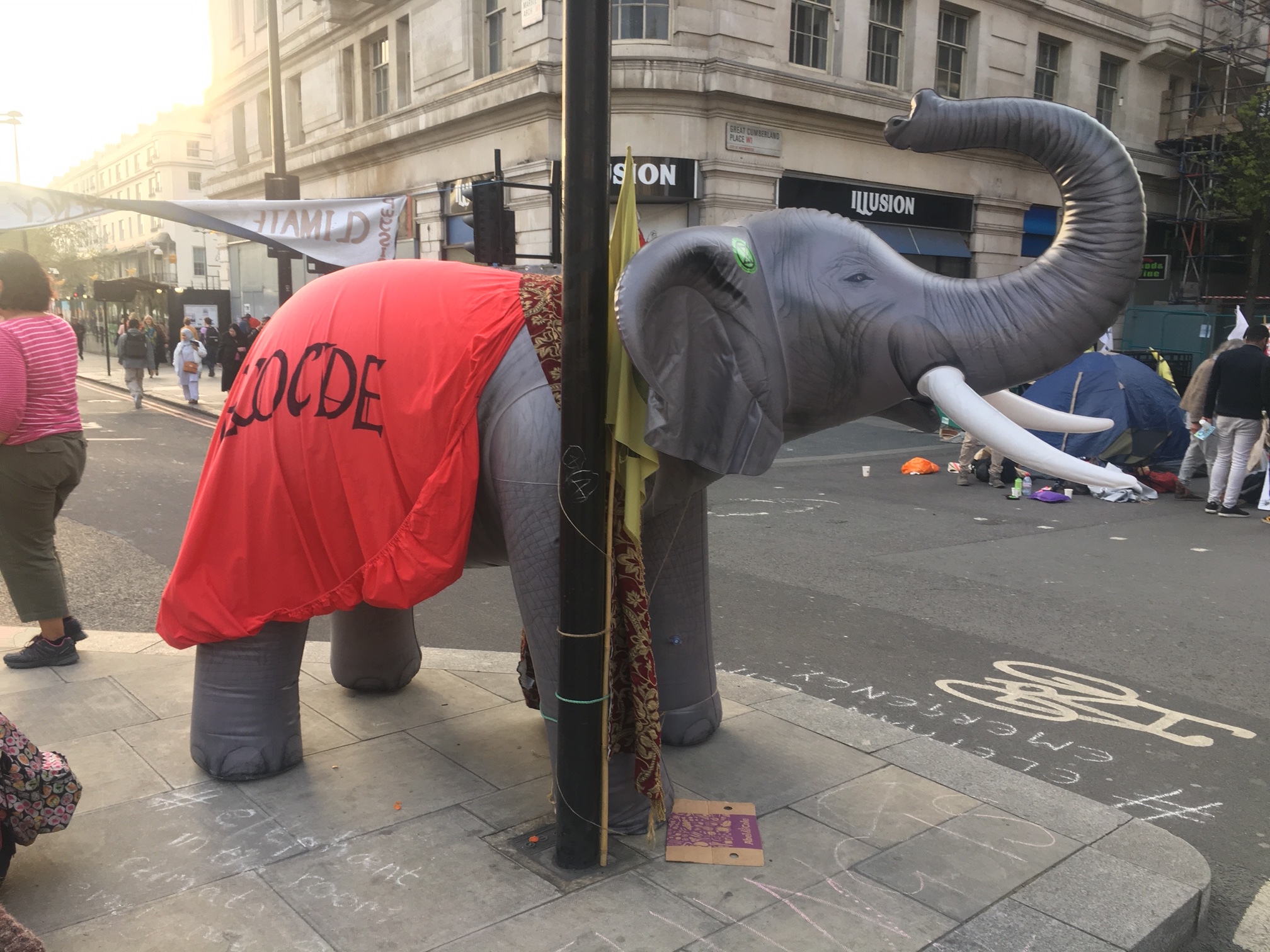
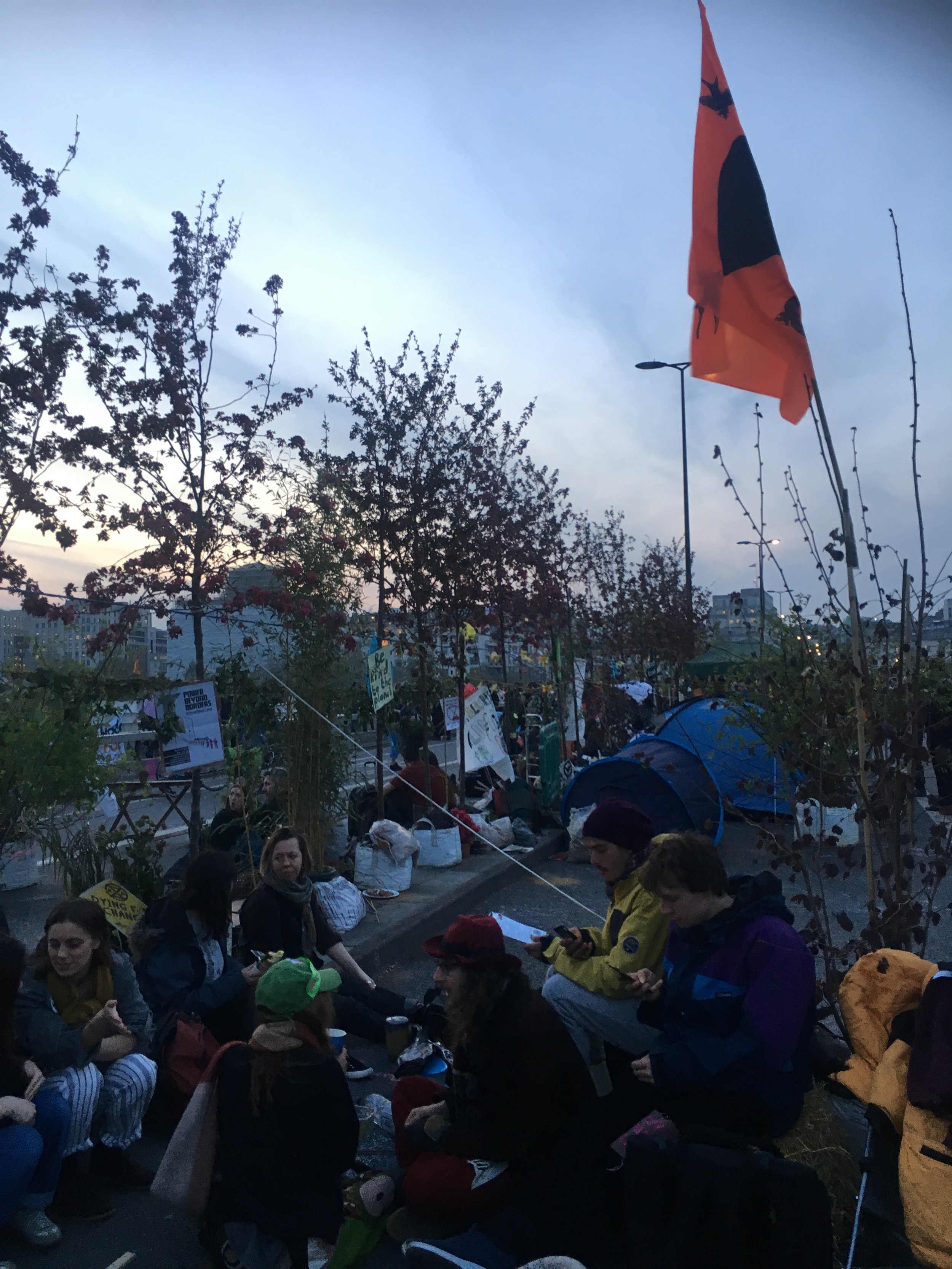
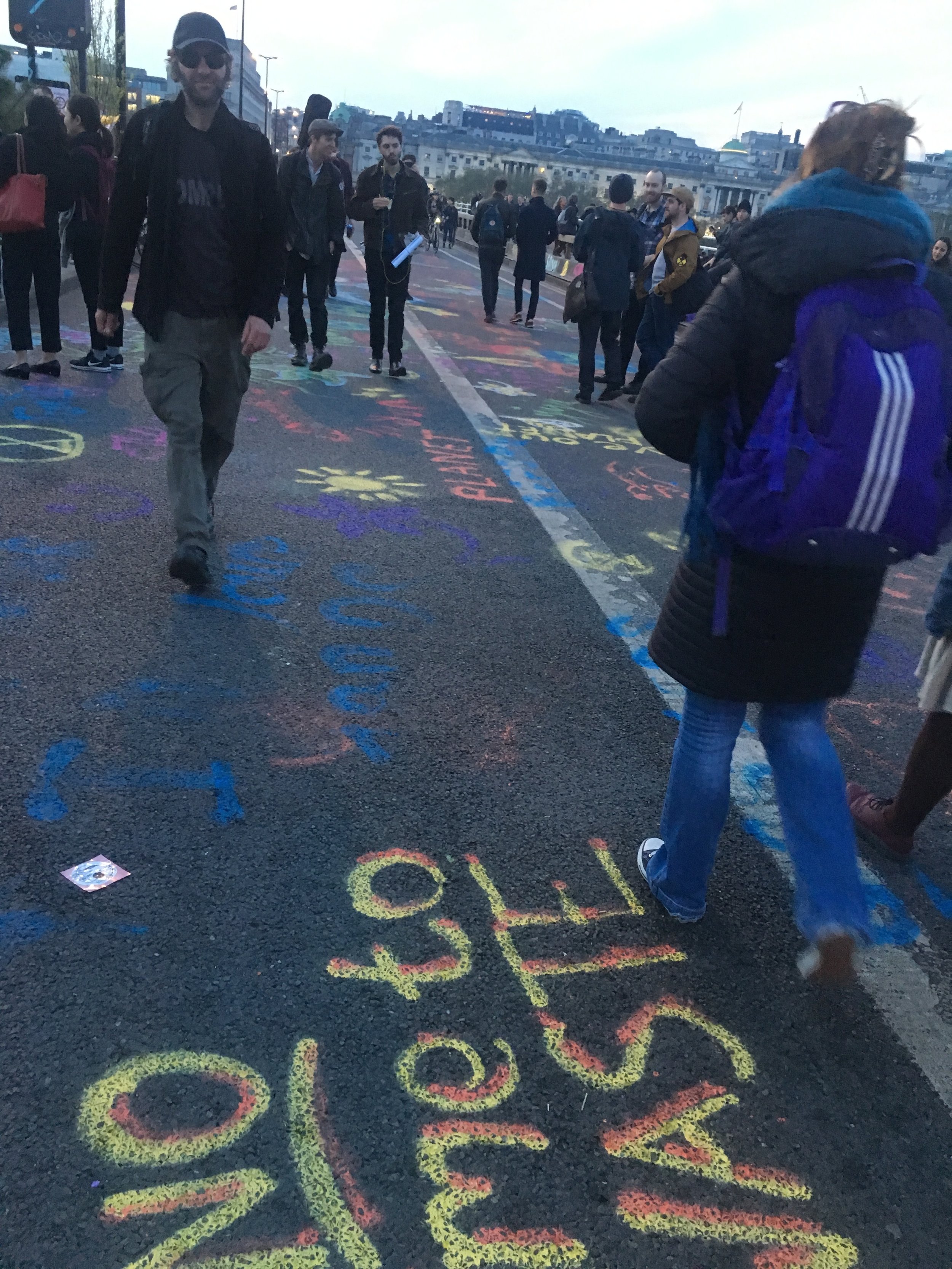
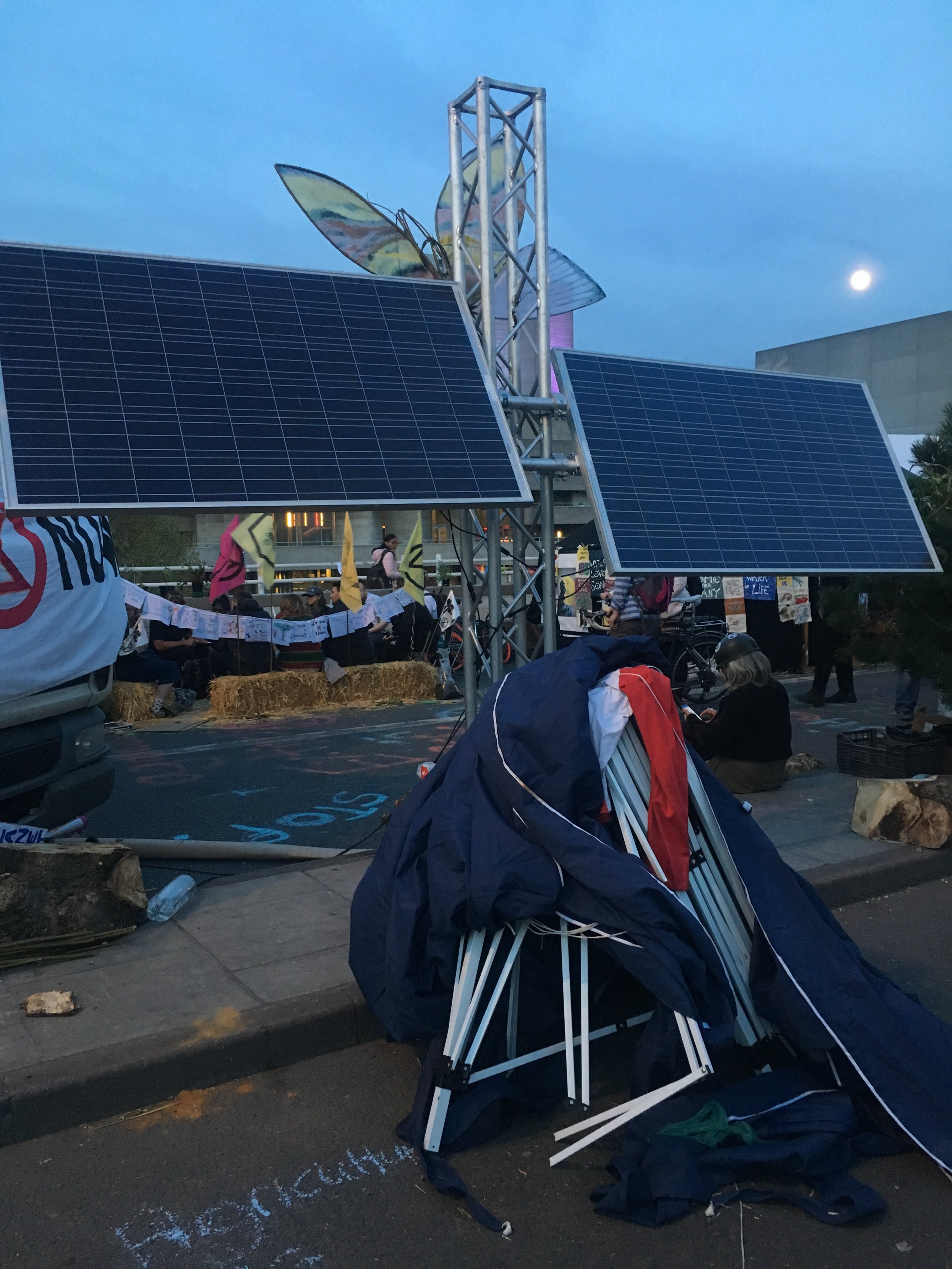
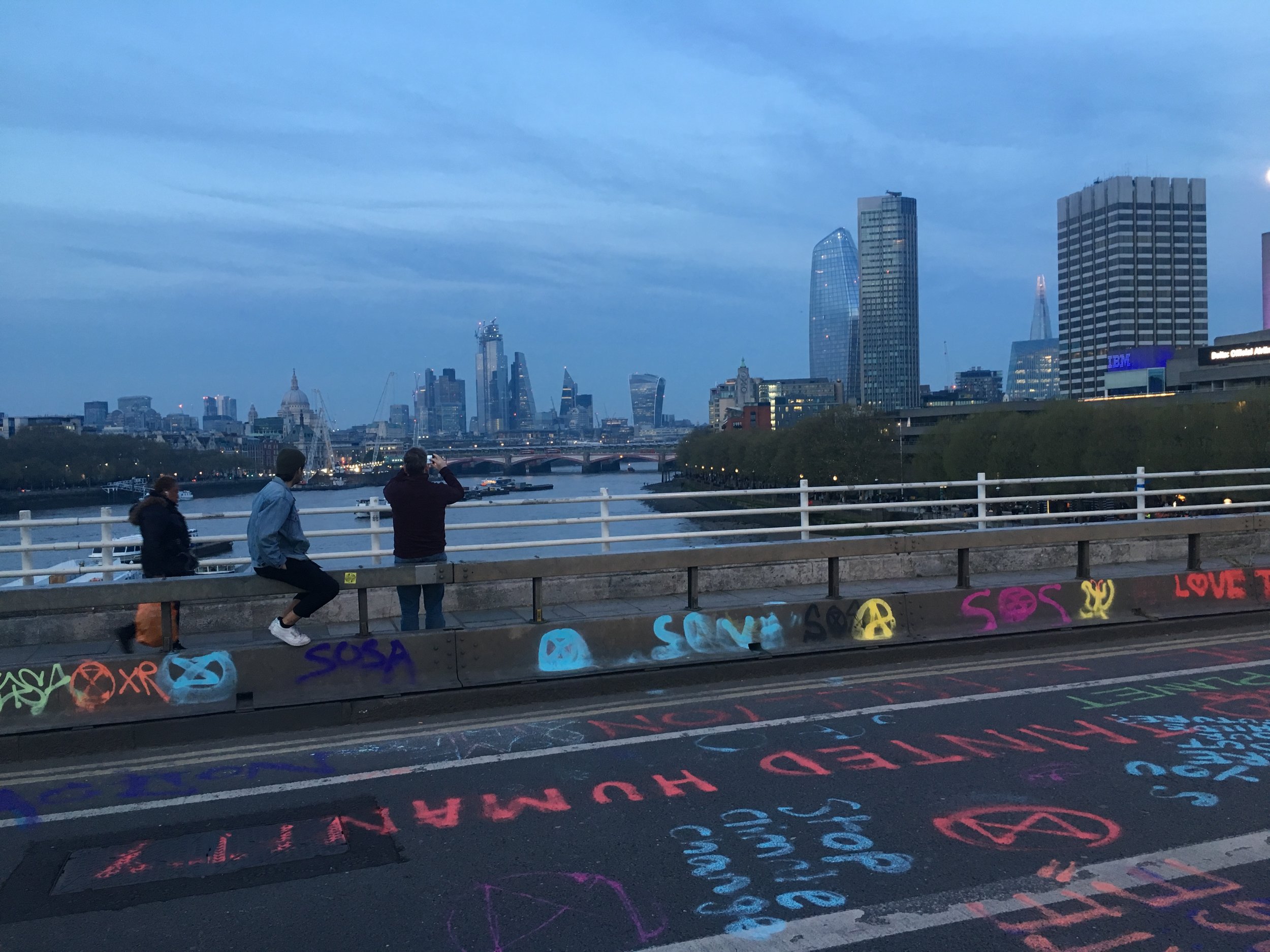

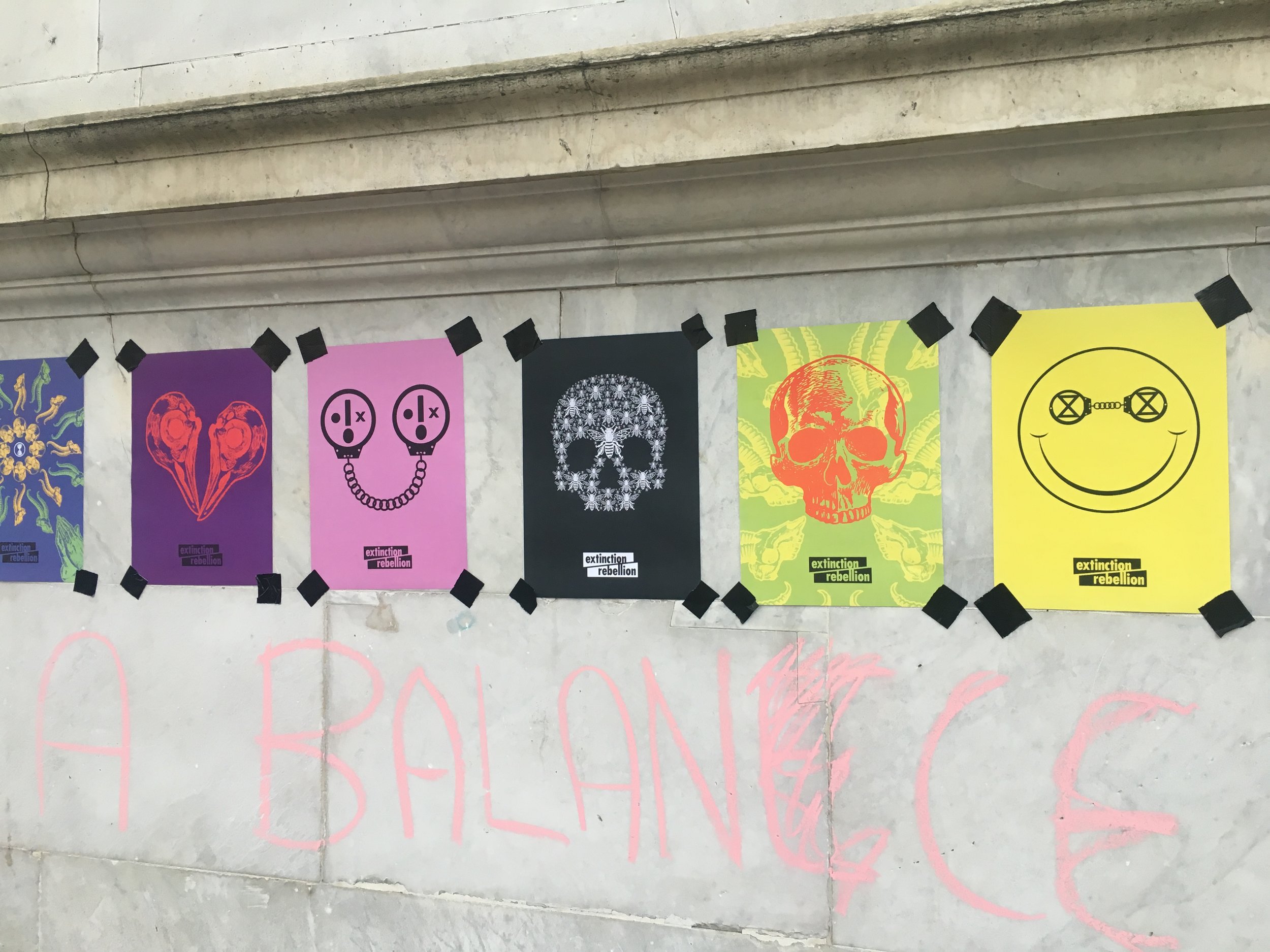
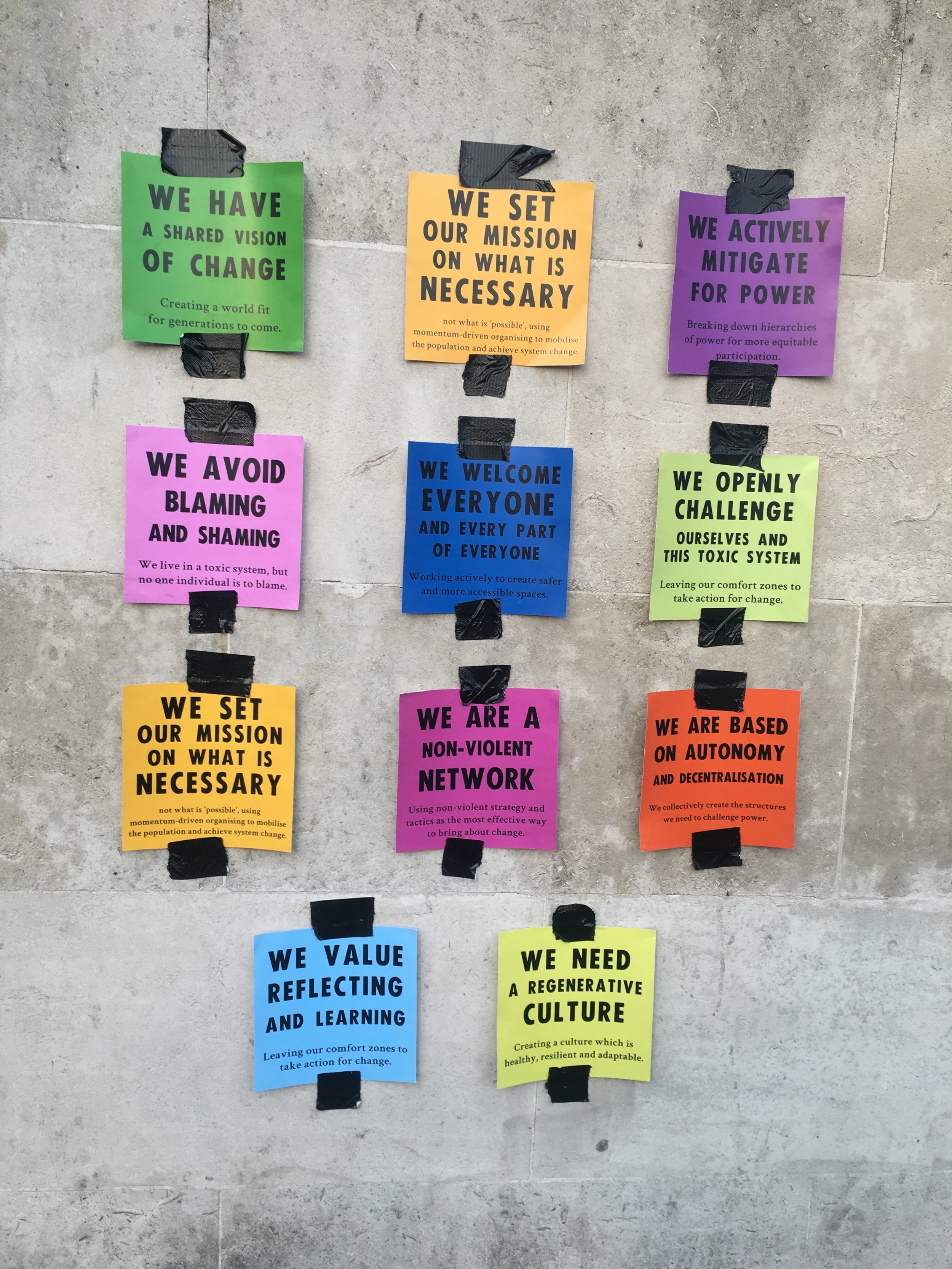
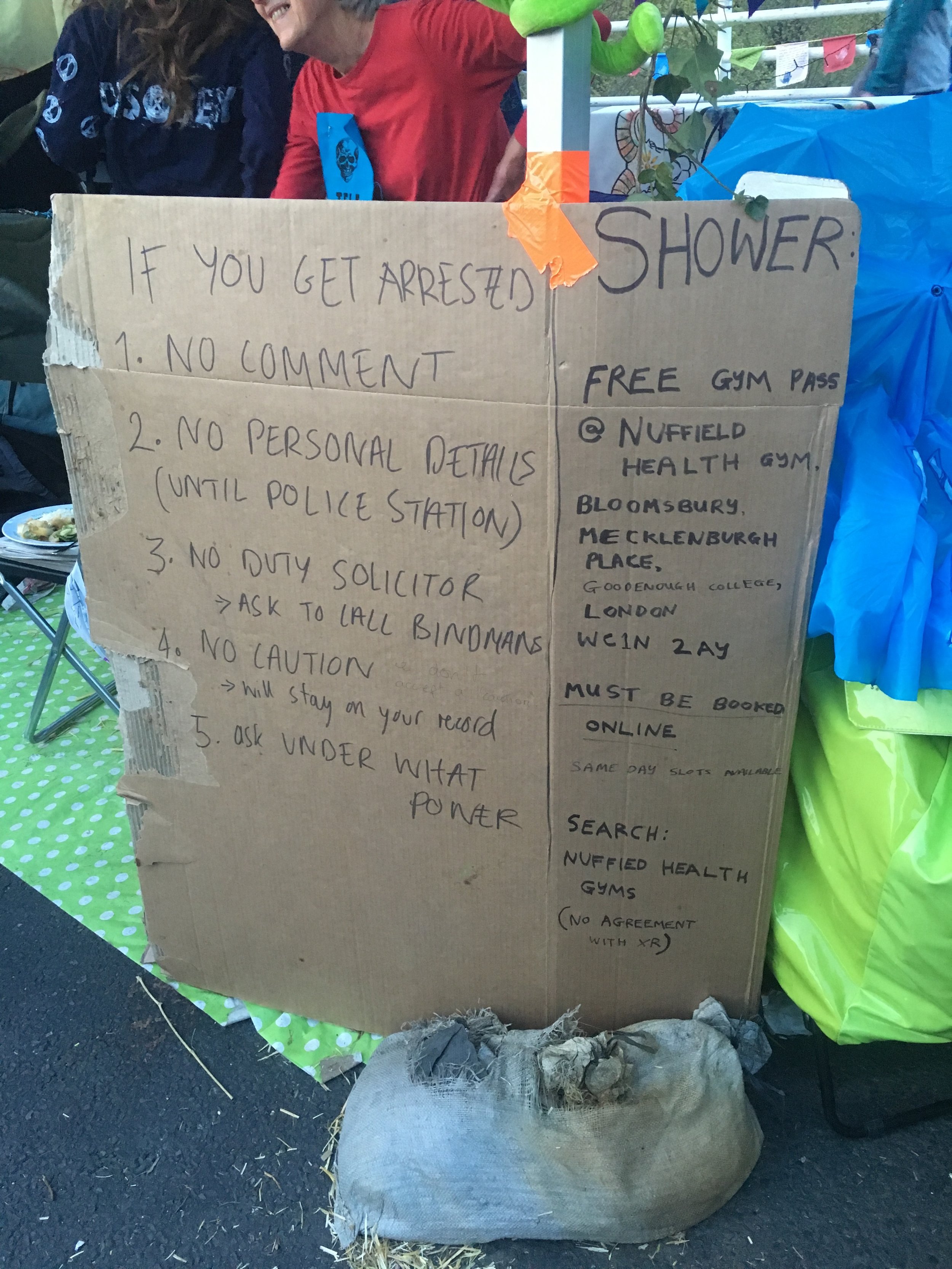

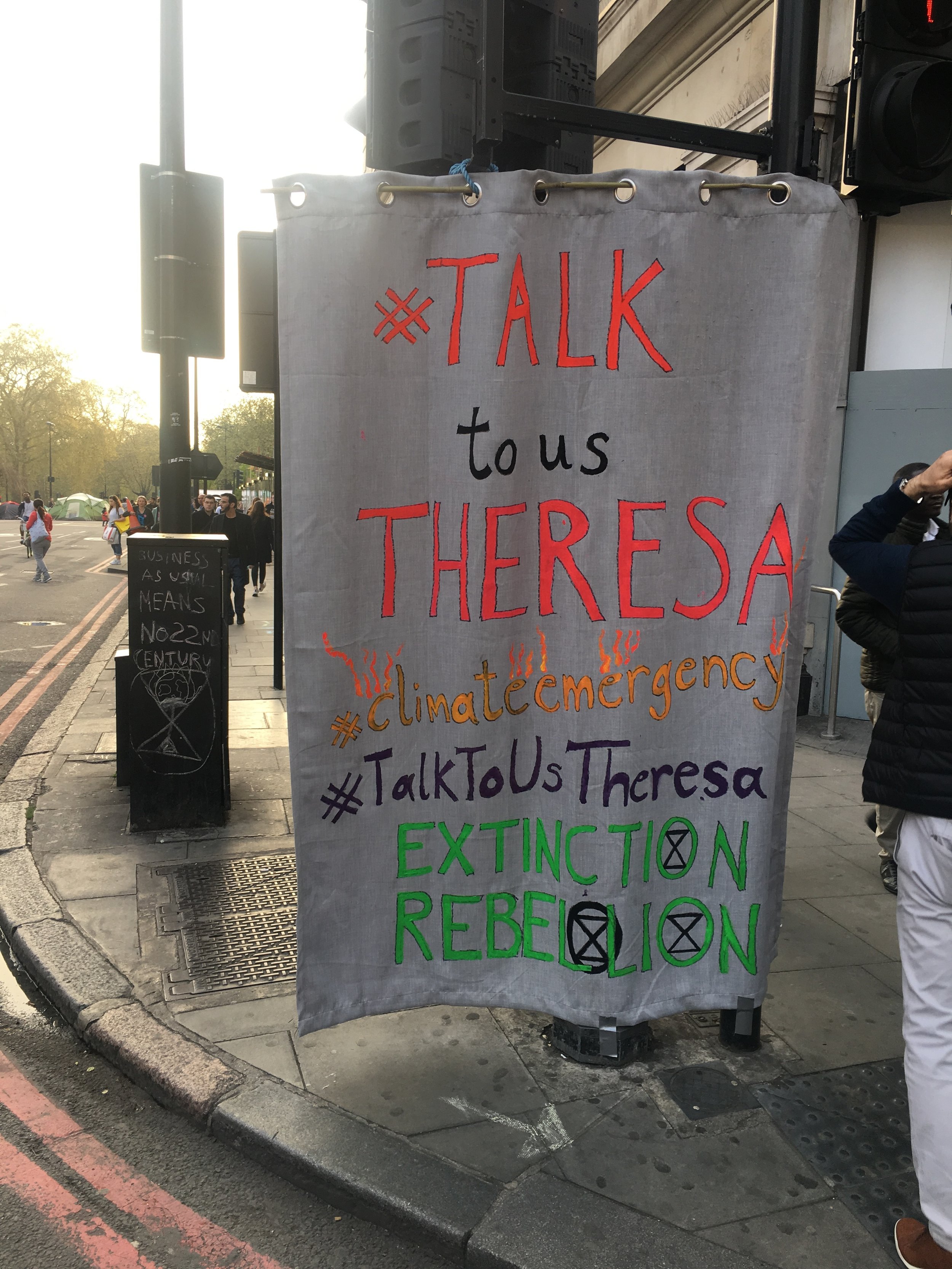
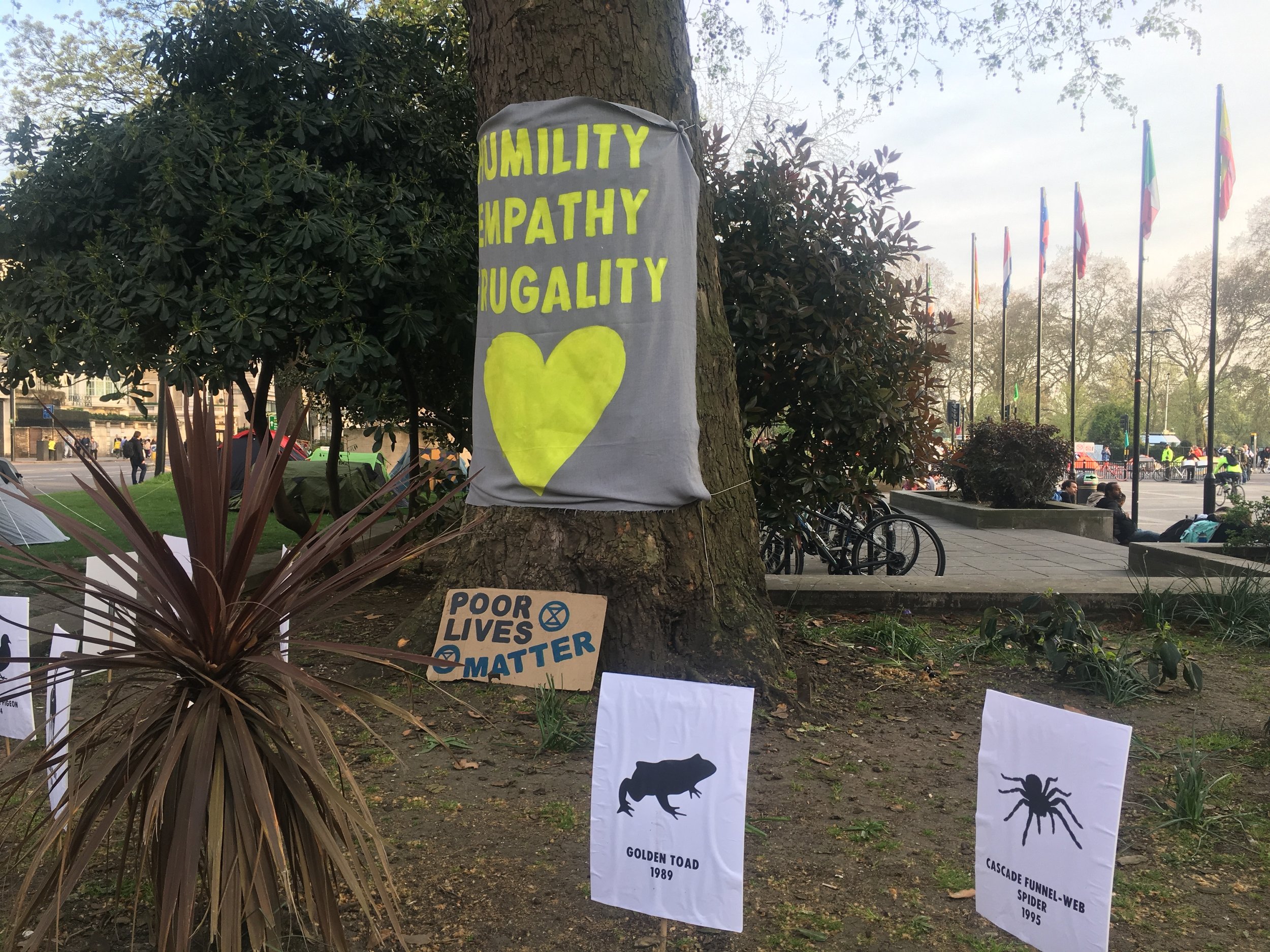
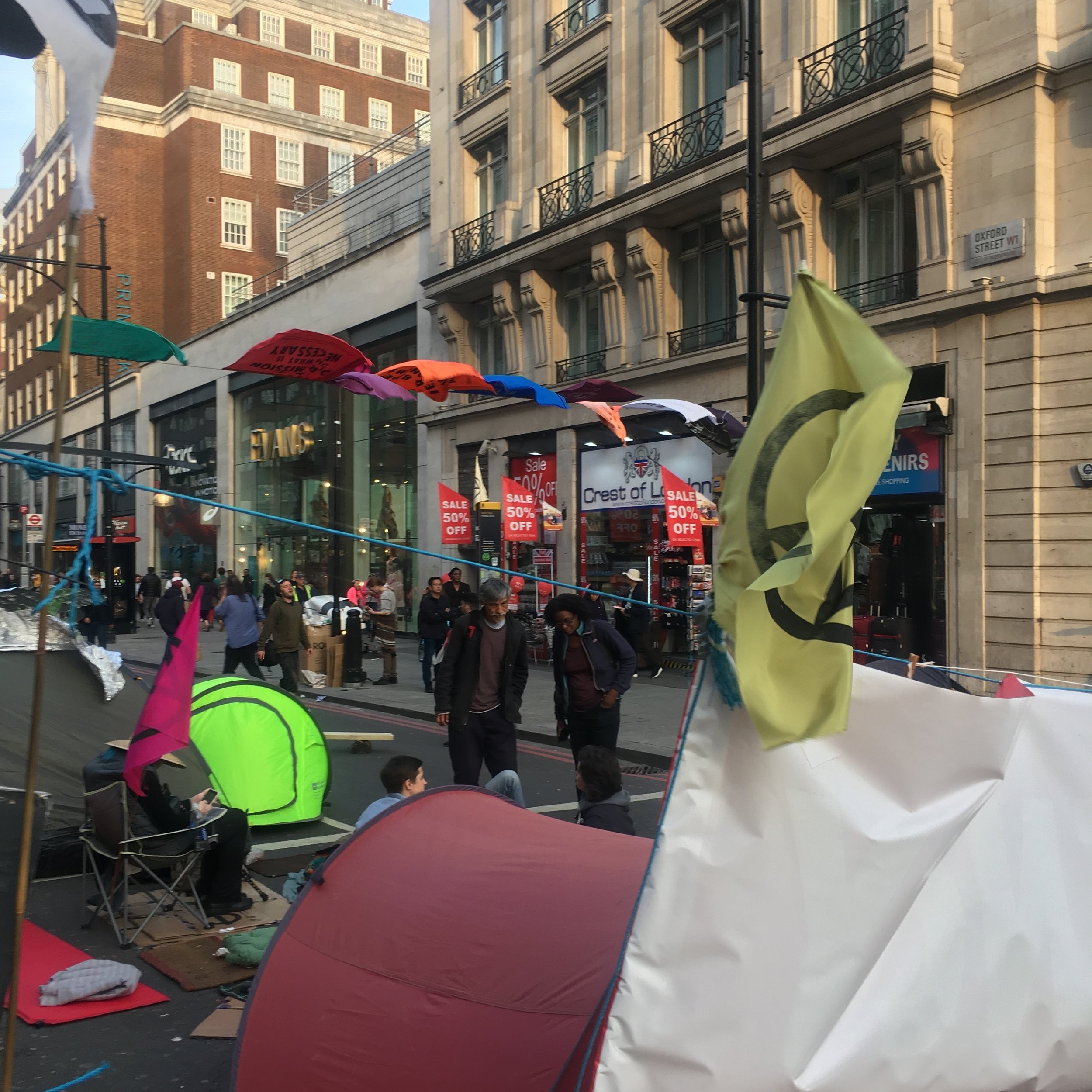
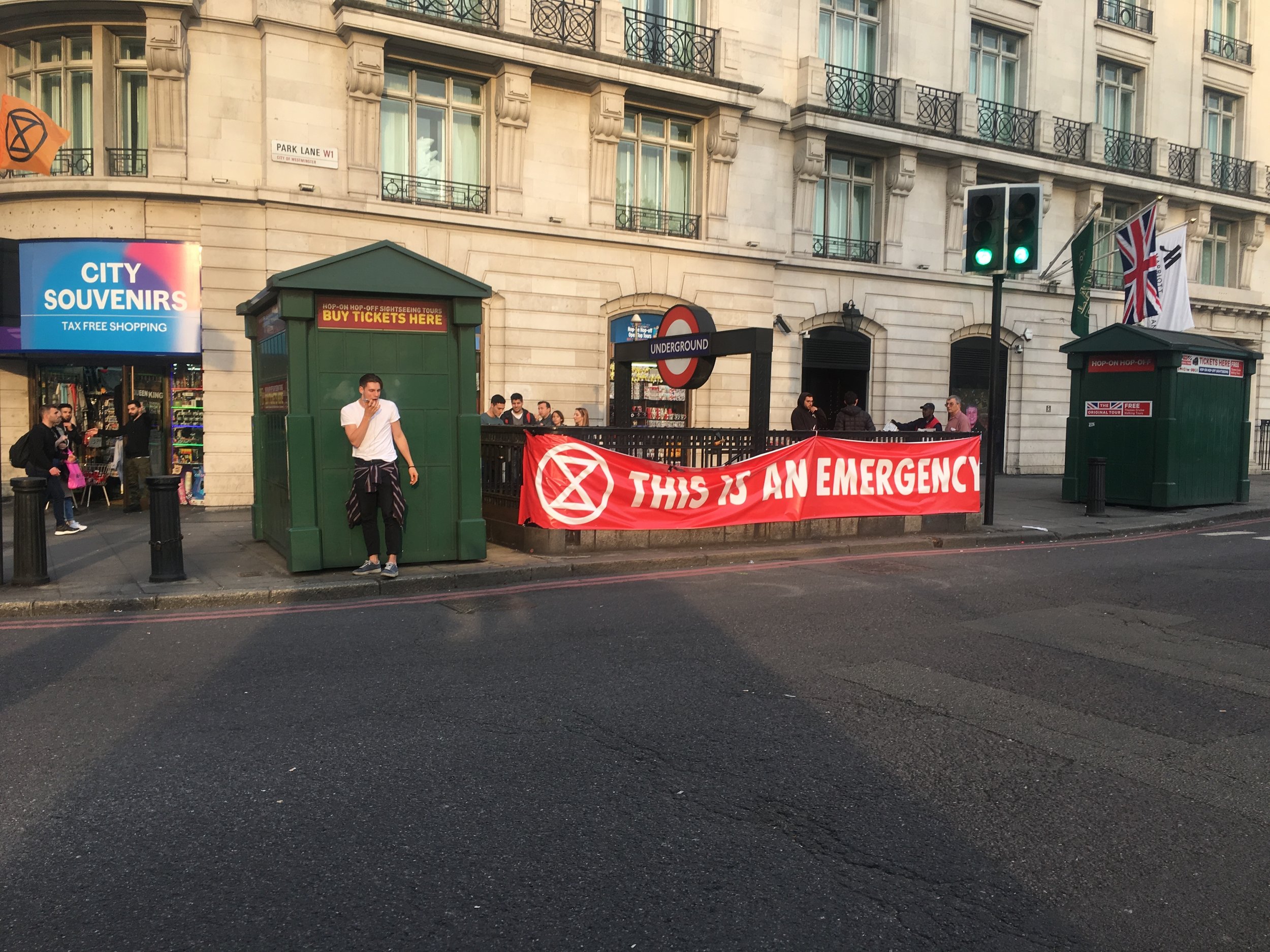

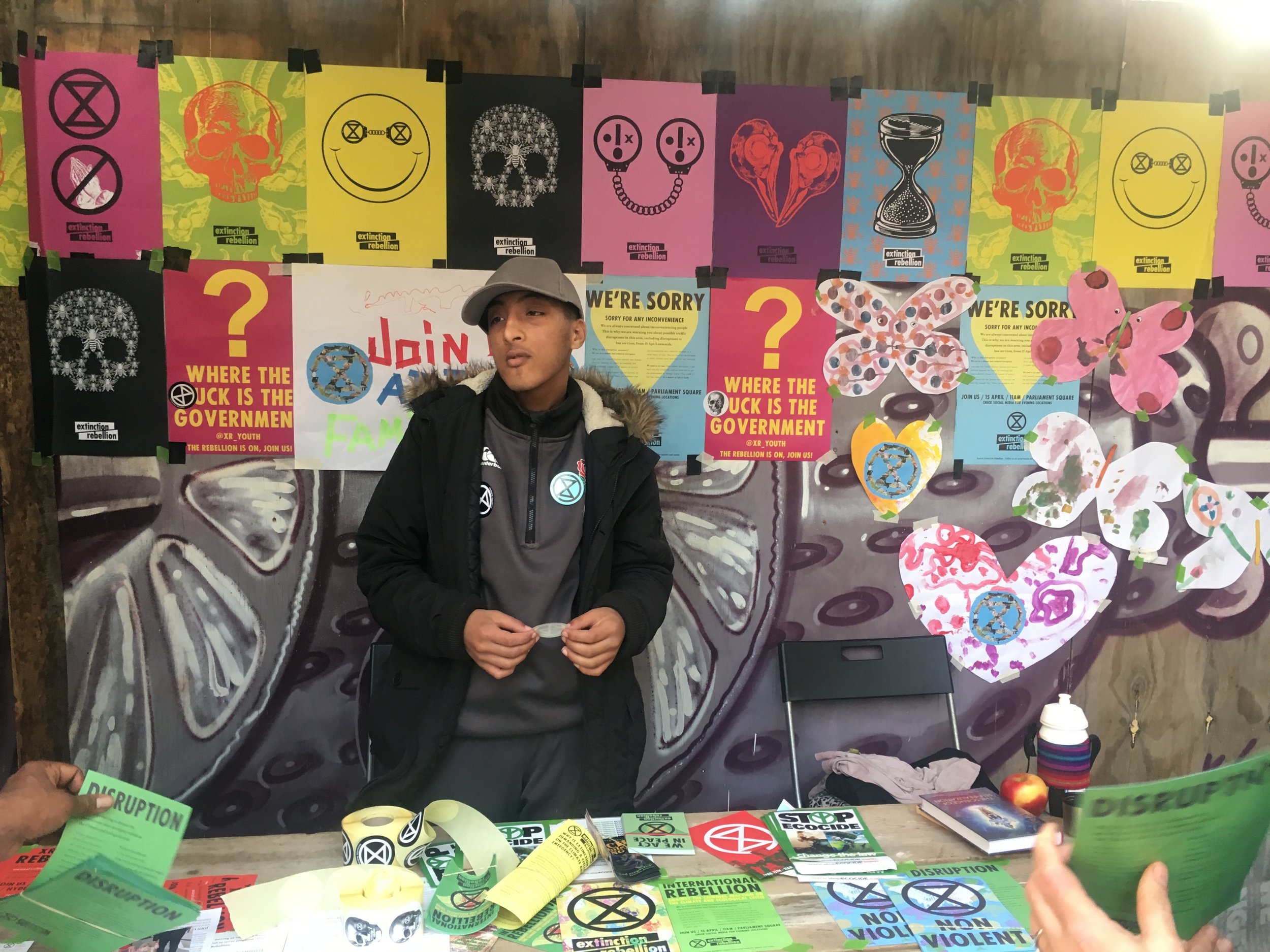
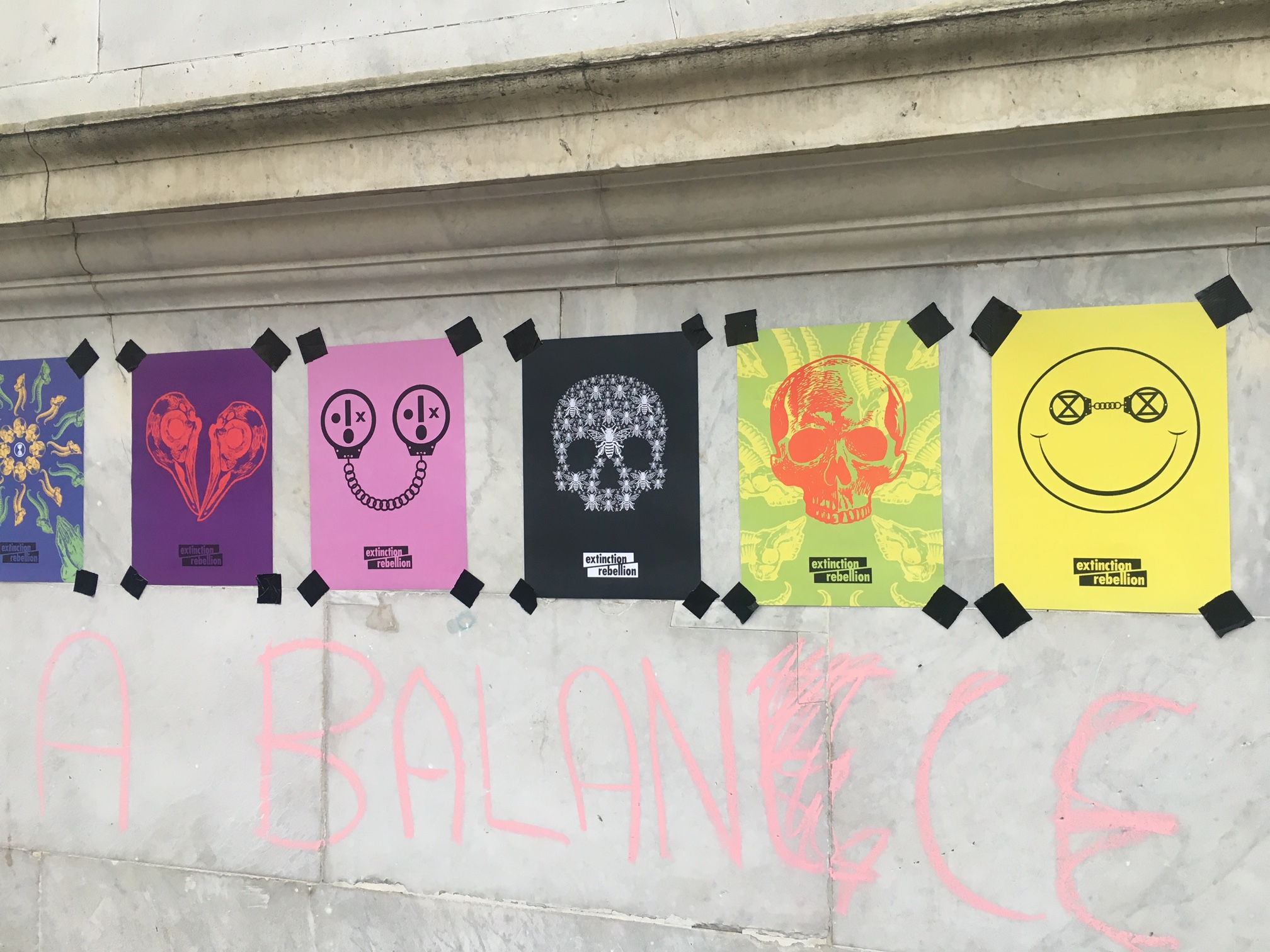
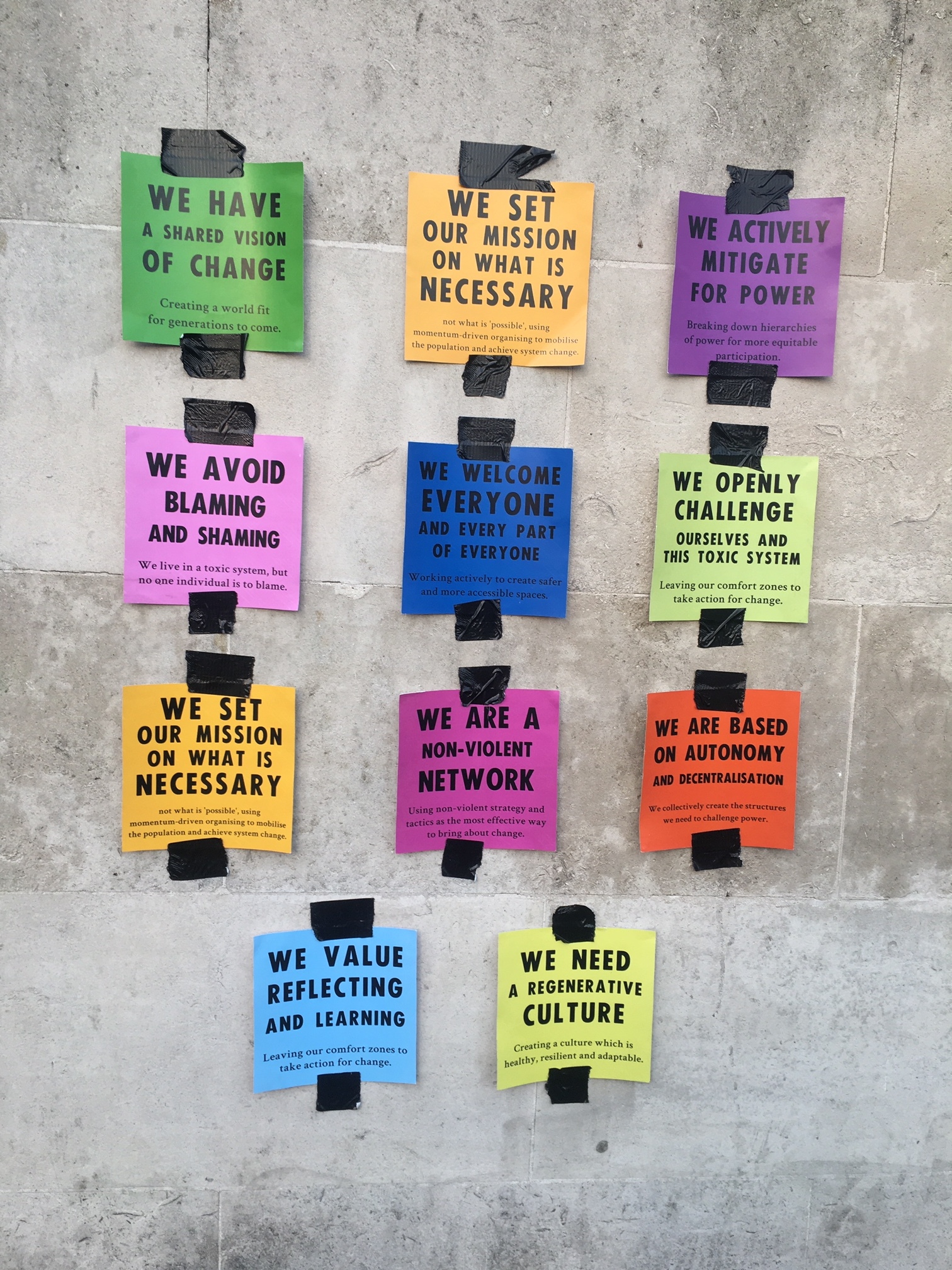
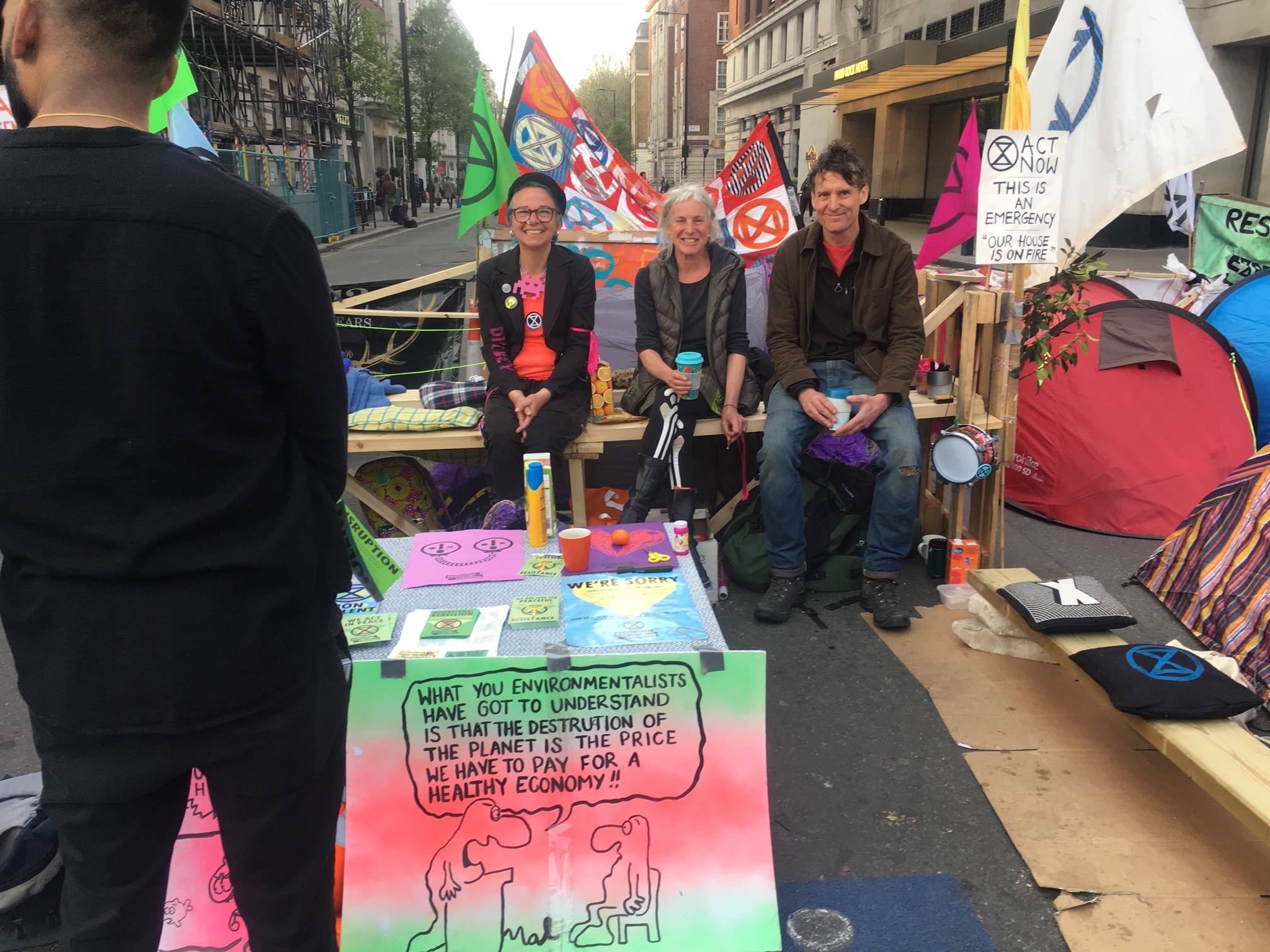
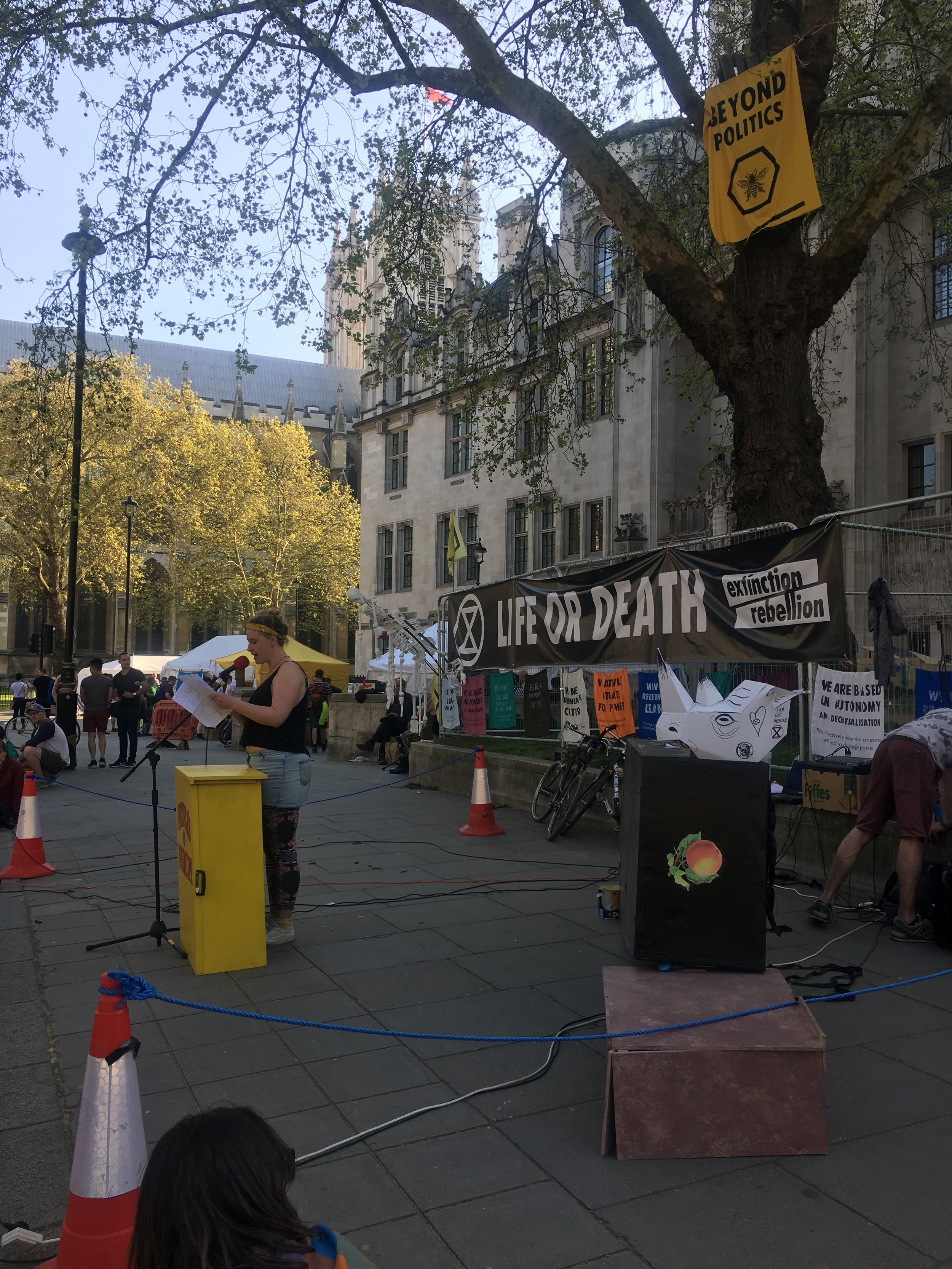
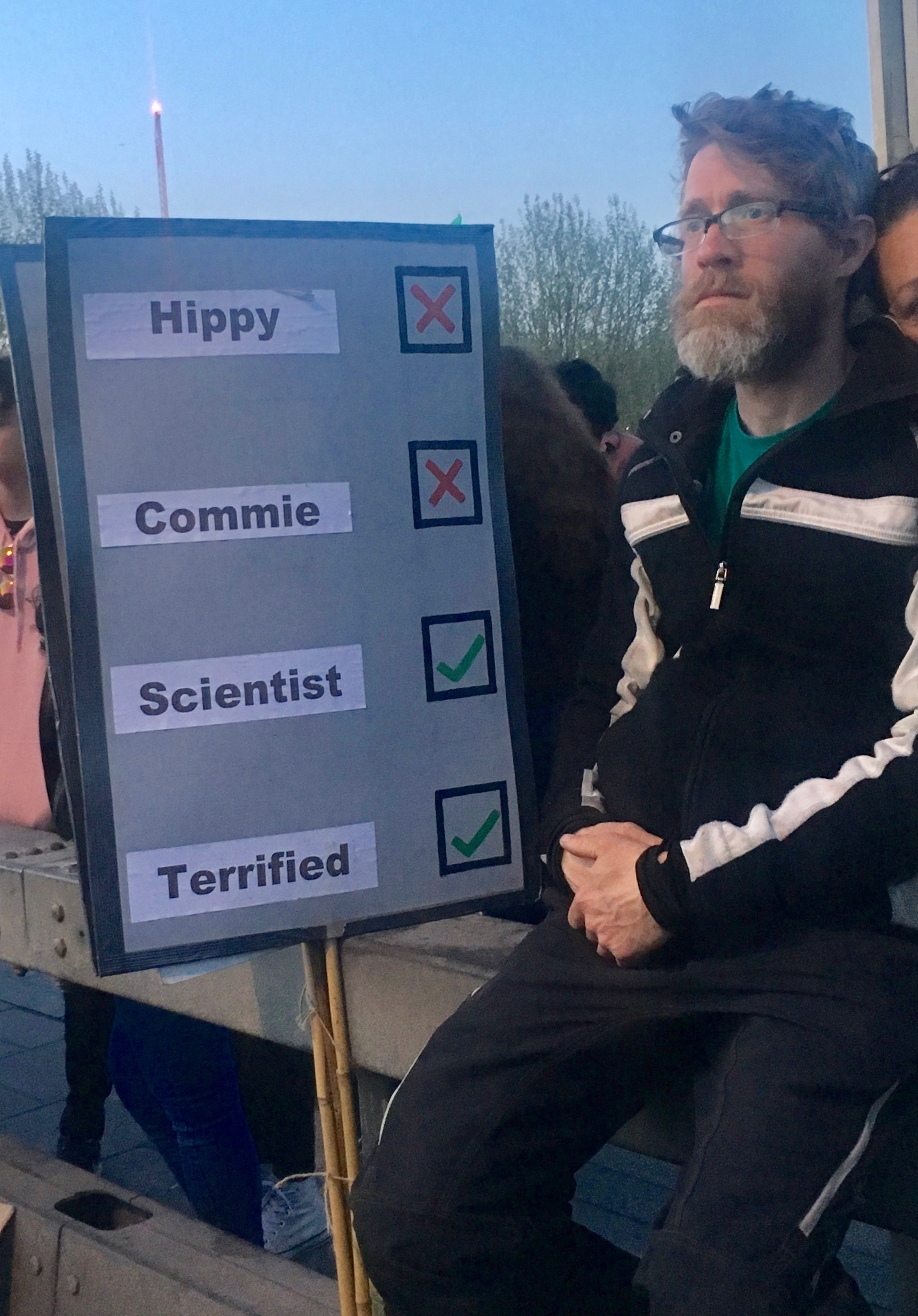
There are few rules, but the few are pointed at maintaining a peaceful community. No drugs or alcohol on site: you are welcome, but your stimulants aren’t. All action is non-violent – which includes the manner of resisting arrest. It’s a very fine line between being arrested for obstruction – standing still - and assaulting a policeman by pulling away or trying to stop a friend being arrested. At all times we are advised to keep three words in mind: humility, empathy, frugality.
Having spoken to Rebels over the days, there is a deep sense that everyone is not only being present and active to the public, but also doing their own heavy internal work. Challenging their own previous beliefs, finding courage, acknowledging and bonding with others. And contrary to the middle-class image the press is promoting, the Rebels are very diverse. I’m speaking to teachers, shop workers, unemployed freelancers… people waking up to both what is dying and what is busy being born.
What’s striking about XR culture is the way it allows sadness and regret about the environmental damage that’s happened, and the resultant hardship to come (those who know the Dark Mountain movement from a few years back will recognize this).
However, this grief is complex because it’s not only for the planet, it’s for our own lack of agency, our own wasted lives. How did we, as a human race, let it come to this? For many, taking part here is the only thing the people can do – they feel so powerless.
We have the key – but can we turn it in the lock?
On Wednesday evening I took part in a very different form of activism. METIS performance arts group created an inter-disciplinary event called Future Scenarios at the Young Vic. This was a follow-up to We Know Not What We Can Be, supported by the Green Commission, and part of the Barbican Theatre’s Art of Change season. The other night, director Zoe Svendsen invited a similar group to come together, to carry on the original conversation (this will feed into an event for the Oslo Architecture Triennale 2019).
Sitting in a circle with artists, theatre directors, administrators and dramaturgs, we heard from a carefully curated group of climate agents. Among them were Andrew Simms from the Rapid Transition Alliance sharing his conviction that all the answers are available; what we lack is commitment. The political economist Richard Murphy who, with Andrew, was a co-creator of the New Green Deal: Murphy referred to his prolific blog writing and the power of narrative.
Wanda Wyporska from the Equality Trust pointed at the deep need for status that absorbs people’s energies into the consumer lifestyle. Dave Boyle, Director of the Community Shares Companys, talked about the impact that shared ownership of local assets makes on people’s lives.
Financial journalist Frances Coppola, whose book on The Case for People’s Quantitative Easing is published in June, told the story of how money is generated through debt and can be distributed at will. She asked: what futures would we choose to fund?
In the midst of all the evidence that we already hold the key to solving our crisis, but are unable – for reasons still unknown - to turn it in the lock, Sue Riddlestone, co-founder of BioRegional, shared her own story of how she founded an eco-community that is already living a zero waste and zero carbon energy life.
Architect Carolyn Steel told a similar story of being in action through the lens of food consumption. Kate Fletcher, Professor of Sustainable Fashion at London School of Action, took us a step further by aligning the feel of wearing certain clothes – for example, skirts – to more environmentally friendly sensibilities.
In stark contrast to any socio-political gathering, this was an evening of hearing different perspectives on a shared problem. Instead of debates, where each might compete with the other for validity, we felt enveloped in multiple possible entry points, working alongside each other, serving diverse audiences.
From The Alternative UK’s perspective, this evocation of another possible future is properly complex, if we view it along the I-We-World axis. Some of the speakers highlighted the need for individual human development, some for better mechanisms of working together. Others advocated for the power of narrative; still others for imagery and models that could help us all to step into a new world.
The overall effect was powerful: as if from that space, we could do all that was needed to shift our planet into a safer space.
At the same time, we knew it was a bubble. A bubble of bubbles, in fact, where each small community represented by the speakers could be a microcosm, but not the whole.
This ability to fully hold a space for transformation, while at the same time acknowledging that others are approaching the same challenge in a completely different way – and be happy to work alongside each other - is what makes this a new way of doing power.
What will save us from Extinction?
Speaking with Gail Bradbrook, co-founder of Extinction Rebellion yesterday at Parliament Square, I was reminded of her clarity on this point. Gail is at once fully committed to her own path and, at the same time, fully respectful of other’s approaches. Doing her best to weave them together, without one co-opting the other.
She reminded me also of Oli Sylvester Bradley’s description of the starlings in murmuration where each bird gives the others around him enough space and autonomy to be able to freely flow. Sometimes following others, sometimes taking the lead.
But what becomes clearer, every week, is that the triple challenge of individual well-being (meaning psychosocial health and agency), democracy and planetary health are really one integrated challenge. And that all the most effective initiatives, described above, hold all of I, We and World within them. You can’t tackle these domains separately – each has to be implied in the other at every stage of the journey.
To imagine a better future, is to imagine ourselves capable and confident; able and willing to collaborate; and interested in the fate of the planet. Awareness and acceleration is happening on all fronts.
Nothing less will save us from Extinction.

